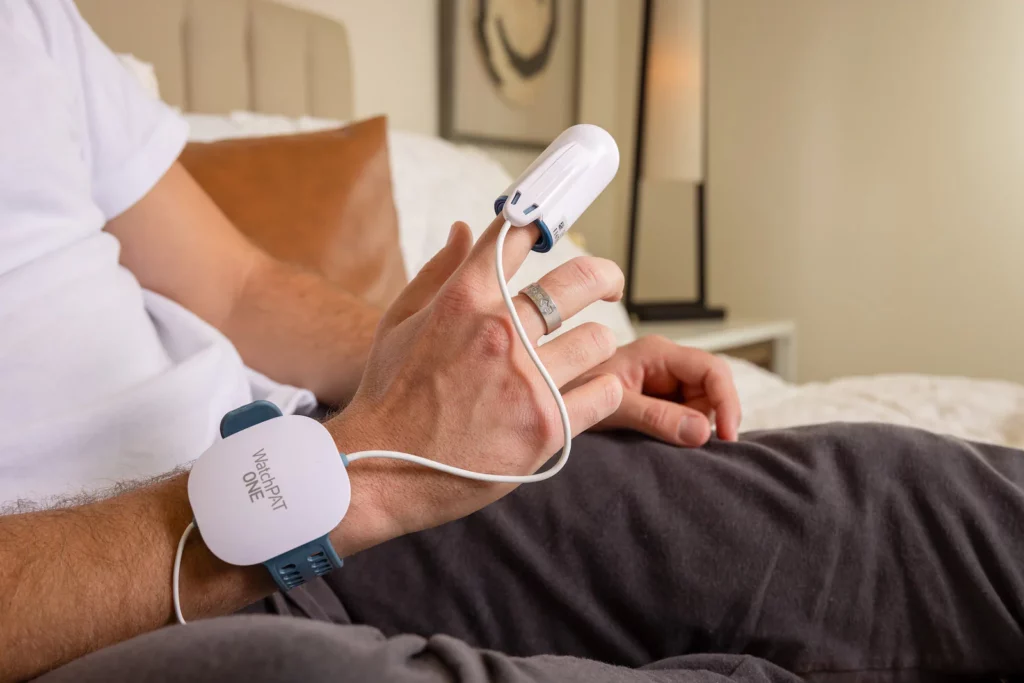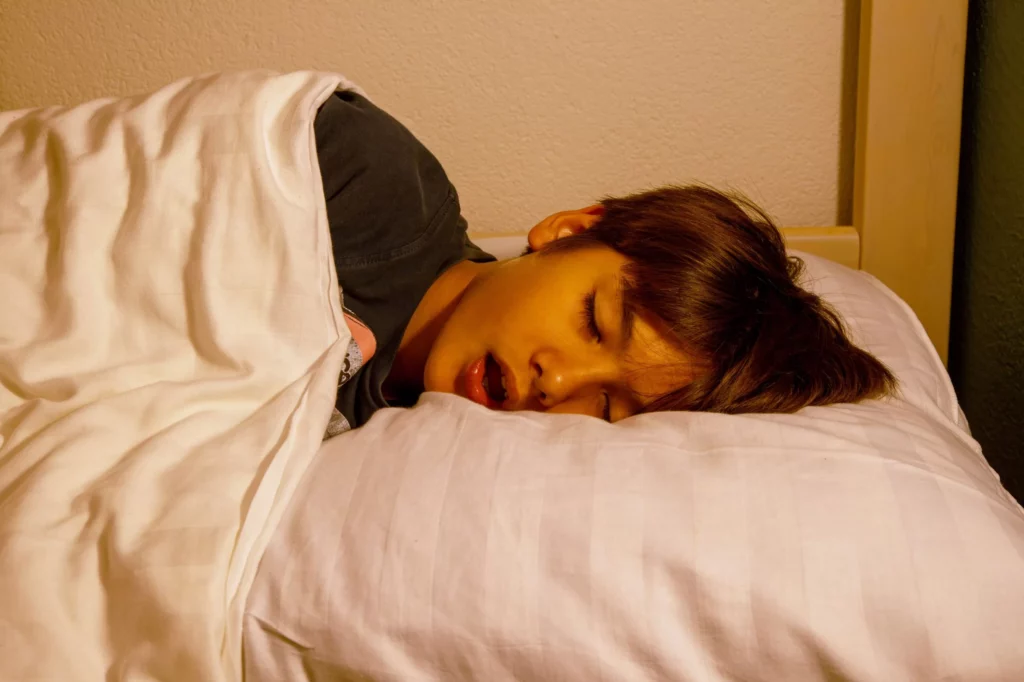Sleep is a fundamental component of overall health and well-being. In recent years, the popularity of home sleep studies has surged, particularly in cities like Hobart. These studies offer a convenient alternative to traditional sleep clinics, allowing individuals to monitor their sleep patterns in the comfort of their own homes. But is a home sleep study the right choice for you? This article delves into the details, benefits, and considerations surrounding home sleep studies in Hobart.
Understanding Home Sleep Studies
A home sleep study is a diagnostic tool used to evaluate sleep disorders, particularly obstructive sleep apnoea (OSA). Unlike traditional sleep studies, which require an overnight stay in a sleep clinic, home sleep studies can be conducted in a familiar environment. This approach can significantly reduce anxiety and improve the quality of the data collected.
A home sleep study Hobart can be an effective and convenient option for individuals in Hobart seeking to diagnose sleep disorders. With the ability to conduct the study in a comfortable environment and the potential for cost savings, many find this approach appealing. However, it is essential to consider the limitations and consult with a healthcare professional to determine if a home sleep study is right for you.

How Do Home Sleep Studies Work?
Home sleep studies typically involve the use of portable monitoring devices that record various physiological parameters during sleep. These parameters may include:
- Breathing patterns
- Heart rate
- Oxygen saturation levels
- Body position
Patients are provided with a device that they wear during sleep, which records the necessary data. After the study, the data is analysed by a qualified sleep specialist, who can then provide a diagnosis and recommend appropriate treatment options. The technology used in these devices has advanced significantly, allowing for more accurate readings and a broader range of data collection. Many modern devices are designed to be user-friendly, often featuring simple instructions and intuitive interfaces to ensure that patients can set them up without difficulty.
Learn more on: Bulk-Bill Sleep Study Hobart Accessing Affordable Care
Who Should Consider a Home Sleep Study?
Home sleep studies are particularly beneficial for individuals who exhibit symptoms of sleep disorders. Common symptoms include:
- Loud snoring
- Choking or gasping during sleep
- Excessive daytime sleepiness
- Difficulty concentrating
Additionally, those who have previously undergone a sleep study in a clinical setting but found it uncomfortable may prefer the home study option. However, it is essential to consult with a healthcare professional to determine if a home sleep study is suitable for your specific situation. Beyond the immediate symptoms, factors such as obesity, age, and a family history of sleep disorders can also indicate a higher risk of conditions like OSA, making a home sleep study a prudent choice. Furthermore, the convenience of conducting the study at home allows for a more natural sleep environment, which can lead to more reliable results compared to the potentially disruptive atmosphere of a sleep clinic.
The Benefits of Home Sleep Studies
Home sleep studies offer several advantages over traditional sleep studies, making them an appealing option for many individuals. Understanding these benefits can help you make an informed decision about your sleep health.
Convenience and Comfort
One of the most significant advantages of home sleep studies is the convenience they offer. Patients can conduct the study in their own bed, which can lead to more natural sleep patterns and accurate results. The familiar environment often reduces anxiety, allowing for a more restful night’s sleep.
Moreover, scheduling a home sleep study can be more flexible than booking a visit to a sleep clinic, making it easier to fit into busy lifestyles. This flexibility is particularly beneficial for those with demanding jobs or family commitments, as it allows them to choose a time that suits their personal schedule. Additionally, the process of setting up the equipment is typically straightforward, often requiring minimal assistance, which empowers patients to take charge of their sleep health. Learn more about equipment on https://mpgimer.edu.in/instruments-and-equipments-general-surgery/
Cost-Effectiveness
Home sleep studies are generally more cost-effective than traditional sleep studies. The reduced overhead costs associated with running a sleep clinic can translate into lower prices for patients. This affordability can make it easier for individuals to seek help for sleep-related issues without the burden of excessive financial strain.
Furthermore, the cost savings extend beyond the initial study. By identifying sleep disorders early through a home sleep study, patients may avoid the need for more extensive and expensive treatments down the line. Early detection can lead to timely interventions, which not only improve sleep quality but also enhance overall health and well-being. This proactive approach can significantly reduce the long-term costs associated with untreated sleep disorders, such as increased healthcare expenses related to chronic conditions exacerbated by poor sleep.
Considerations Before Opting for a Home Sleep Study
While home sleep studies offer numerous benefits, there are also important considerations to keep in mind before proceeding. Being aware of these factors can help ensure that you make the best choice for your health.
Limitations of Home Sleep Studies
It is crucial to recognise that home sleep studies may not be suitable for everyone. These studies are typically designed for diagnosing obstructive sleep apnoea and may not capture other sleep disorders, such as central sleep apnoea or complex sleep apnoea syndromes. Individuals with certain medical conditions or those who are significantly overweight may require more comprehensive monitoring that can only be provided in a sleep clinic.
Furthermore, the accuracy of home sleep studies can be affected by various factors, including the placement of sensors and the patient’s ability to follow instructions. In some cases, a follow-up visit to a sleep clinic may be necessary for a definitive diagnosis.
Consulting with a Healthcare Professional
Before deciding on a home sleep study, it is advisable to consult with a healthcare professional who specialises in sleep medicine. They can provide valuable insights into your symptoms and help determine whether a home study is appropriate for your situation. This consultation can also address any concerns you may have about the process and what to expect.
Preparing for Your Home Sleep Study
If you and your healthcare provider have determined that a home sleep study is right for you, it is essential to prepare adequately. Proper preparation can help ensure that the study yields accurate and useful results.
Understanding the Equipment
Before the night of your study, you will receive instructions on how to use the monitoring equipment. Familiarising yourself with the device is crucial, as this will help you feel more comfortable when it is time to conduct the study. Most devices are user-friendly, but understanding how to properly attach sensors and wear the device can make a significant difference in the quality of the data collected.
Creating a Sleep-Conducive Environment
To maximise the effectiveness of your home sleep study, it is important to create a conducive sleep environment. This includes:
- Ensuring your bedroom is dark and quiet
- Maintaining a comfortable temperature
- Avoiding caffeine and heavy meals before bedtime
By preparing your environment, you can help facilitate a more natural sleep experience, which is crucial for obtaining accurate results.
What to Expect After the Study
Once the home sleep study is complete, the collected data will be analysed by a sleep specialist. This process typically takes a few days, after which you will receive a report detailing the findings.

Interpreting the Results
The results of your home sleep study will indicate whether you have obstructive sleep apnoea or any other sleep-related issues. If a diagnosis is made, the specialist will discuss potential treatment options with you. These may include lifestyle changes, the use of continuous positive airway pressure (CPAP) therapy, or other interventions tailored to your needs. To read more about treatment click here.
Follow-Up Care
Follow-up care is an essential component of managing sleep disorders. Regular check-ins with your healthcare provider can help monitor your progress and make necessary adjustments to your treatment plan. It is important to communicate any ongoing symptoms or concerns, as this feedback can guide further interventions.
Conclusion
Ultimately, prioritising sleep health is crucial for overall well-being. Whether through a home sleep study or traditional methods, taking steps to understand and address sleep issues can lead to improved quality of life and better health outcomes.

